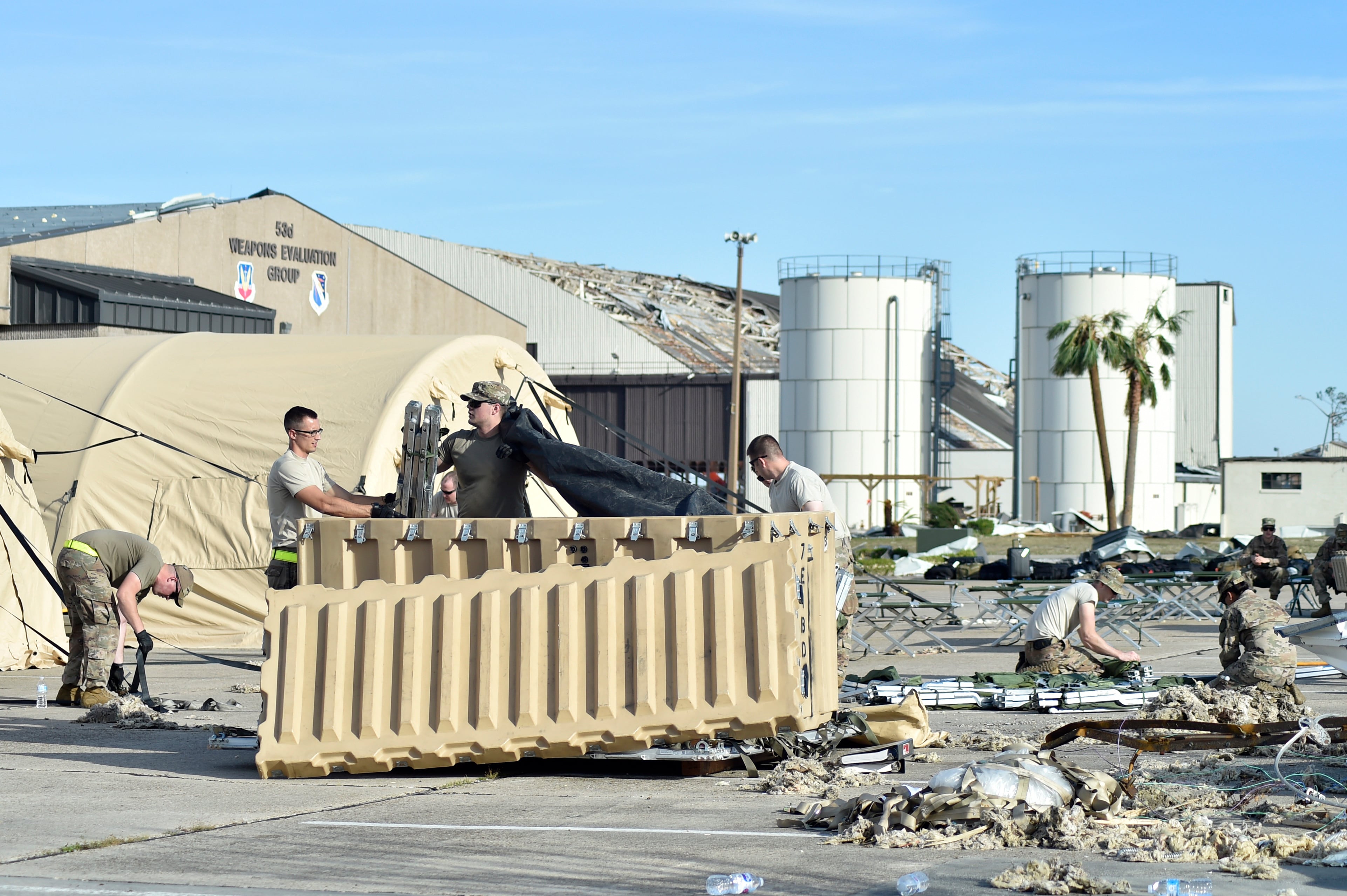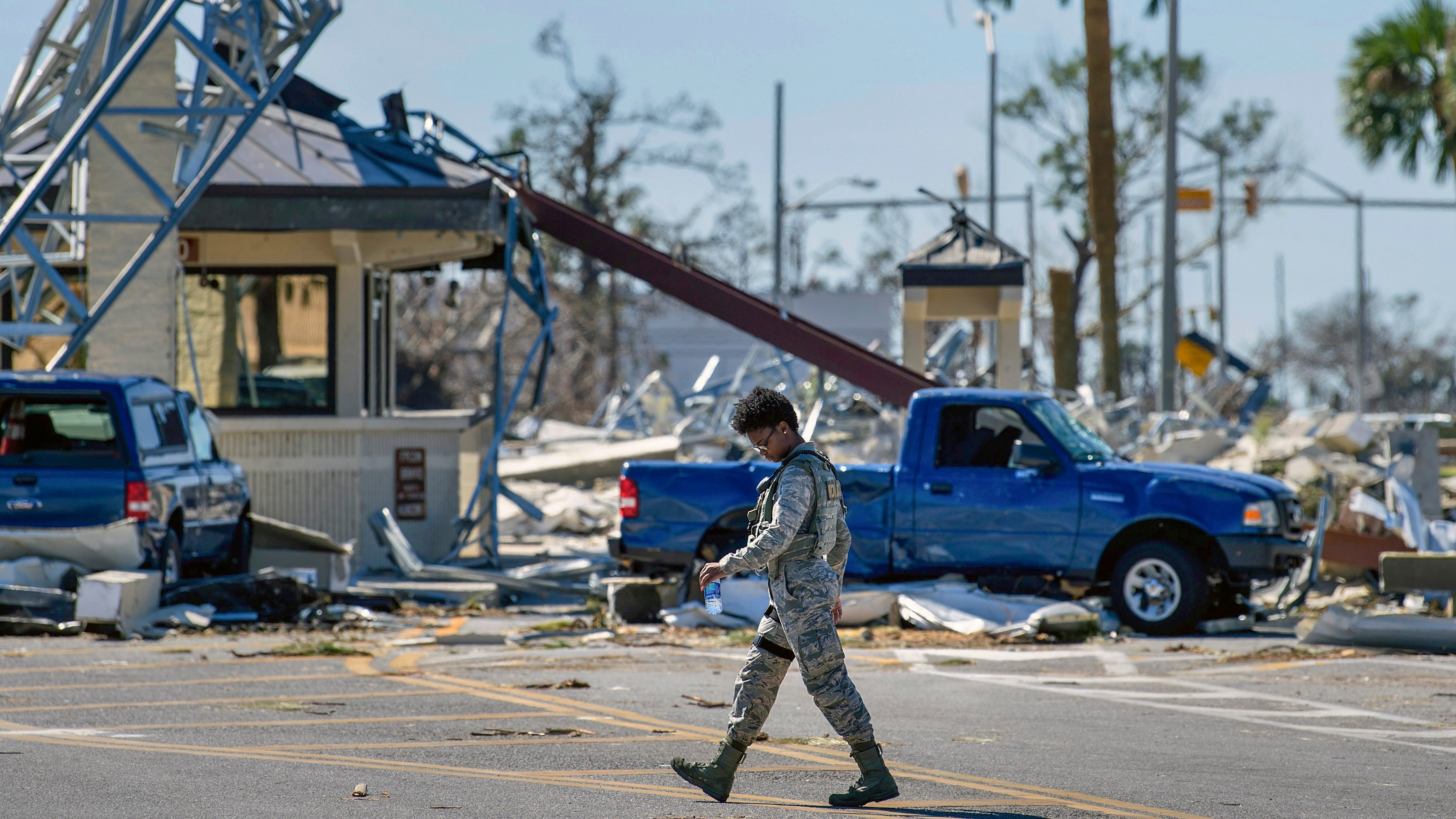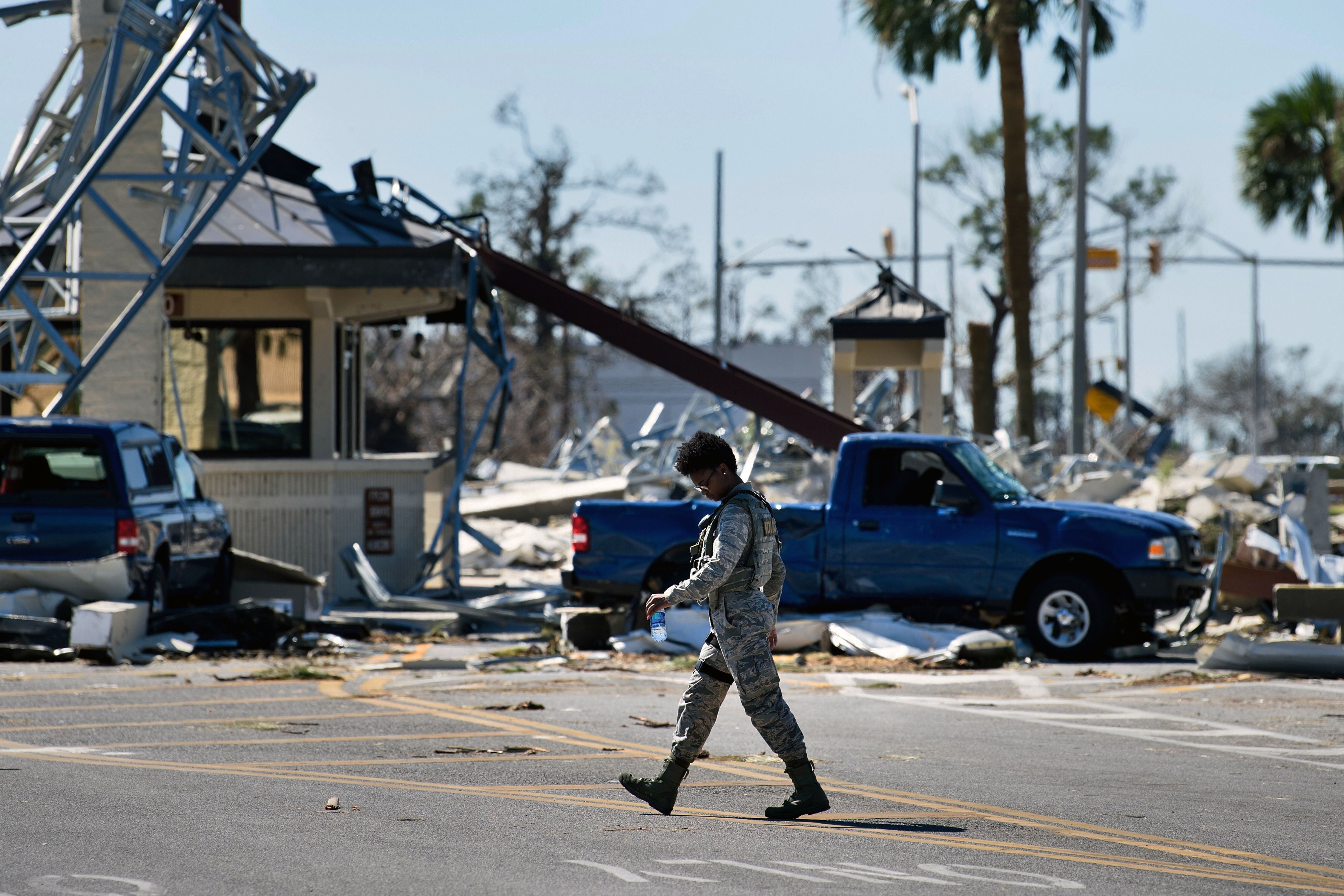Damage tolls have already piled up this year in the face of massive flooding and devastating tornadoes in the Midwest. Amid those responses, the National Guard is shoring up for hurricane season, which officially kicks off Saturday and lasts until the end of November.
More than 5,000 airmen and soldiers are well poised to respond throughout the Gulf and Atlantic coasts and the Caribbean, the Guard’s vice director of domestic operations told reporters on Thursday, despite the existing work load.
“That does not impact [a response], if we had a major hurricane strike next week,” Air Force Brig. Gen. Jeff Burkett said. “We have an in-depth bench that can be called on if needed.”
To prepare, units have run their own local exercises, made updates to their communications process so that everyone has the right person to call and forecasting which units will be ready to respond to events in every area. That includes units whose members may be victims of the disasters themselves, and who would be able to travel to fill in.
RELATED

“We’re doing very predictive force planning on this and thinking through how we can support each other very effectively, very quickly if a disaster happens,” Burkett said.
Texas, for example, has done two exercises this year, he said, and has another planned for June.
“The responses to these events – it starts at the local level," he said. “All disasters are local disasters.”
Though National Guard troops are often deployed to help with evacuation, search and rescue and then relief, Burkett said that the Guard really should only step in when local law enforcement, emergency response and public health agencies are overwhelmed.
“I would say, only call on the military … when you absolutely have to,” he said. “We should always be a last resort.”
Still, leaders have confidence that each state’s Guard is trained and equipped enough to handle not only emergency response, but their responsibilities to deploy overseas when called up, as well as help out neighboring states in a crisis.
RELATED

“I don’t have any indicators if it’s going to be better or worse,” Burkett said of this year’s hurricane season.
Still, past years have prompted more planning and coordination, so that state Guards can anticipate what they’ll need and whom to reach out to in every contingency.
“Part of a good response is just knowing who you are, at the state level," Burkett said.
But even if storms pile up, he said, there aren’t any concerns at his level about burning through resources.
“I can’t think of a time when we’ve really run out of capability to leverage against a problem,” he said.
Meghann Myers is the Pentagon bureau chief at Military Times. She covers operations, policy, personnel, leadership and other issues affecting service members.





